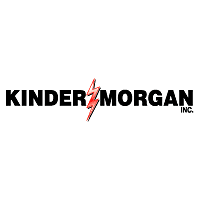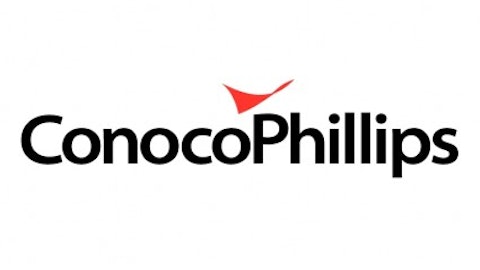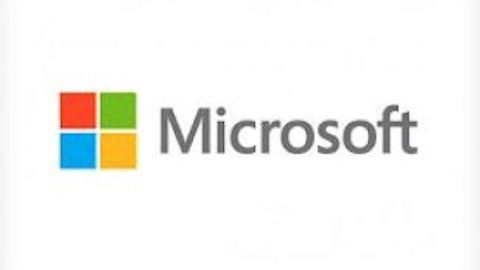Yesterday, Hedgeye analyst Kevin Kaiser released a 45-page report suggesting that investors avoid or actively short the various securities of Kinder Morgan. Kaiser is a 26 year-old former Princeton hockey star, and to his credit the report is long, with lots of detail, well-written, and superficially convincing. However, it’s full of faulty logic, incorrect assumptions, and a general sense of hubris. Most specifically, Kinder Morgan is not “starving” its assets, the pipelines are safe, its energy business isn’t a secret, and limited partner investors aren’t stupid.
If you’re not familiar with Kinder Morgan and its four related companies, get up to speed with Kinder Morgan for Beginners by Fool Aimee Duffy. Also, one stylistic note: when I refer to “Kinder Morgan,” I’m referring in general to the companies various entities. When I’m referring to a specific entity, I’ll use the stock symbol — KMI for Kinder Morgan Inc (NYSE:KMI), KMP for Kinder Morgan Energy Partners LP (NYSE:KMP), EPB for El Paso Pipeline Partners, L.P. (NYSE:EPB), and KMR for Kinder Morgan Management, LLC (NYSE:KMR).

In his report, Kaiser alleges that “Kinder Morgan’s high-level business strategy in its pipeline segments is to starve the assets of routine maintenance expenses and capex…” That along with calling Kinder Morgan a “house of cards” seems to imply that the company is letting its pipelines breakdown. That’s simply not the case. Kinder Morgan Inc (NYSE:KMI) spent $2.6 billion on capital expenditures over the past year. That seems a reasonable amount to maintain and grow $35 billion in net property, plant, and equipment. And, Kasier’s main quibble — how capital expenditures are classified, either as maintenance or expansion — doesn’t particularly worry me. He thinks that more should be classified as maintenance, and he alleges that Kinder Morgan purposely mis-classifies investments to benefit the general partner versus the limited partner. I’m not sure if this is true — others have suggested that its a strategic choice, not a mis-classification. Perhaps, Kinder Morgan finds it more cost effective to replace pipelines than to repair them. But, in the end, its just an issue of how profits are divided between Kinder Morgan’s various entities, which is a well-known and common issue in the master limited partnership (MLP) industry. In short, there’s no reason to think the company is holding back on investment and letting its pipelines rust.
2. Kinder Morgan pipelines are not unsafe
Building on his notion that Kinder Morgan isn’t keeping up its assets, Kaiser alleges that its pipelines and facilities are unsafe. He cites a number of specific examples of leaks or accidents that involved Kinder Morgan, some going back a decade or more. His premise seems to be, because there have been accidents, Kinder Morgan is an unsafe operator. What he fails to do is put those accidents in context. Kinder Morgan is the largest mid-stream energy company in the United States, and accidents are not totally avoidable in the industry. Kinder Morgan actually has a significantly above average safety record based on gas pipeline incidents per 1,000 miles. And, Kinder Morgan’s operations are monitored by regulators, including various state agencies and the U.S. Department of Transportation Pipeline and Hazardous Materials Safety Administration (PHMSA). According to Kinder Morgan Inc (NYSE:KMI)’s 10-K and PHMSA’s online enforcement database, the company doesn’t have any major safety issues. Regulators don’t always get it right, and keeping pipelines and facilities safe is important. But, PHMSA is certainly more qualified to judge pipeline safety than Kaiser. And, Kinder Morgan seems in good standing with PHMSA.
3. Investors are well-aware of Kinder Morgan’s oil production business
Kaiser points out correctly that Kinder Morgan is also an oil and gas producer. And, again correctly in my opinion, he asserts that because oil production is a cyclical business, it deserves a lower relative valuation that Kinder Morgan’s steadier infrastructure business. Then he makes a rather odd assumption that investors are unaware of Kinder Morgan’s interest in energy production. Thus, he states that investors are overvaluing Kinder Morgan. I find this a bit ridiculous for two reasons. First, Kinder Morgan has widely disclosed its interest in energy production. You can read about it in the Kinder Morgan’s fact sheet, investor presentationsor SEC filings. Second, energy production is only a small part of Kinder Morgan’s cash flows. If you look at projected 2013 earnings before depreciation, depletion and amortization (DD&A) by segment, Kinder Morgan Inc (NYSE:KMI) is forecasting that oil production will only be 14% of its business. For Kinder Morgan Energy Partners LP (NYSE:KMP), the same number is 18%. El Paso Pipeline Partners, L.P. (NYSE:EPB) is 100% natural gas pipelines. Note those numbers do exclude certain items, but it puts the oil business in context. It is small component of Kinder Morgan, which generates most of its business through pipelines and terminals.
4. Limited partner investors are not naive and unimformed
As part of his larger argument that the general partner, owned by Kinder Morgan Inc (NYSE:KMI), is taking advantage of limited partners, he asserts that Kinder Morgan Energy Partners LP (NYSE:KMP) is primarily owned by retail investors. According to CapIQ, that’s true — ownership of Kinder Morgan Energy Partners LP (NYSE:KMP) is 73% public investors. He then implies only uninformed retail investors would be naive enough to invest in Kinder Morgan Energy Partners LP (NYSE:KMP). This statement shows a complete lack of understanding of MLPs. Most MLPs are owned by individual investors for structural reasons. Tax treatment and ownership rules make it difficult, foolish, or impossible for many institutions to invest in MLPs. Thus, it’s only natural that KMP is primarily owned by individuals. And, its because of tax treatment and ownership restrictions on institutions, not because “dumb money” retail investors are being hoodwinked. If fact, numerous institutions have expressed interest in investing. To meet that need, a special security was created — Kinder Morgan Management, LLC (NYSE:KMR). Its shares are pari passu with Kinder Morgan Energy Partners LP (NYSE:KMP) with the same distribution, except KMR’s distribution is paid in additional shares instead of cash. No K-1 is required, and there is no unrelated business income tax (UBTI). As you might expect, Kinder Morgan Management, LLC (NYSE:KMR) is majority owned by institutions.
Foolish Bottom Line
Don’t put too much stock in this latest bit of research from Kevin Kaiser and Hedgeye. It’s slickly packaged and full of confident assertions, but the conclusions miss the mark. It seems like a typical Wall Street tactics — use hype and salesmanship while skimping on substance. In truth, the Kinder Morgan companies are well-managed, boast solid assets, and will play a big role in meeting America’s future energy infrastructure needs. Of course, it has its risks, like higher interest rates, frozen credit markets, or changing regulations.
The article 4 Things Hedgeye Got Wrong originally appeared on Fool.com and is written by Brendan Mathews.
Brendan Mathews owns shares of Kinder Morgan. The Motley Fool recommends El Paso Pipeline Partners LP and Kinder Morgan. The Motley Fool owns shares of Kinder Morgan.
Copyright © 1995 – 2013 The Motley Fool, LLC. All rights reserved. The Motley Fool has a disclosure policy.





